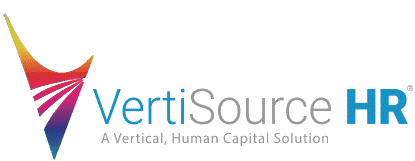There can be many problems that arise with record retention requirements. Here are a few things to note for easier record retention.
I-9 Forms
I-9 forms are used to make sure individuals are authorized to work in the United States.
It’s important to store employee I-9 forms for three years after the hiring process and at least one full year after employment has ended, whichever date comes later. Employee I-9 forms can be stored electronically or on paper, microfilm, or microfiche. Either way, they should be stored separately from personnel files to protect employees’ personally identifiable information.
Personnel And Employment Record Retention Requirements
According to the EEOC, employers must keep personnel and employment records. This includes job applications, resumes, promotion and demotion documentation, and anything relating to termination of employment. Businesses must also maintain records from all applicants—even if they are not hired.
EEOC Charge Record
If a charge against a company has been filed with the EEOC, all relevant departments and individuals will need to preserve all info, data, and evidence related to the matter. These records will need to be kept until a final resolution is reached.
Compensation Records
The EEOC and DOL are tasked with specific enforcement related to record retention requirements for compensation documentation.
EEOC
Employers are required to retain payroll records for three years under both the Age Discrimination in Employment Act (ADEA) and the Fair Labor Standards Act (FLSA) as it applies to the Equal Pay Act (EPA). Additionally, employers must keep employee benefit plans, seniority or merit systems, and compensation records (such as wage rates, job evaluations, and collective bargaining agreements) for at least two years to ensure EPA compliance. These record retention requirements apply to all employers covered by federal anti-discrimination laws, regardless of whether an EEOC charge has been filed.
DOL
The U.S. Department of Labor (DOL) is tasked with FLSA enforcement. Under the FLSA, employers must maintain various payroll records.
For example, records of employees’ names, addresses, dates of birth, occupations, pay rates, weekly compensation, collective bargaining agreements, individual contracts, and written agreements must be kept. Additionally, sales and purchase records should be kept for three years. Basic employment and earnings records should be retained for two years, including wage rate tables, salary, wages, overtime pay information, work schedules, and deductions or additions to wages.
Tax Records
The IRS says that employers should keep all records of employment taxes for at least four years after filing Q4 paperwork for the year.
Additional items to keep in tax records include employer identification number, employment dates, wages and tips reported, periods for which employees and recipients were paid while absent due to sickness or injury, and the amount and weekly rate of payments you or third-party payers made to them.
Benefits Records
ERISA, COBRA, ADEA, and HIPAA specify the documents companies must keep for benefits plan-related purposes, and the length of time the documents must be saved varies by the enforcing law.
Keep employee benefit plan governing documents, summary plan descriptions, notices, and evidence of fiduciary actions indefinitely. Retain records supporting Form 5500 filings, such as vesting, distribution info, coverage, nondiscrimination testing data, benefit claims, enrollment materials, election, deferral data, and account balance and performance data for six years after filing. HIPAA privacy records should be kept for six years from the creation or last effective date, whichever is later. While COBRA notices have no mandatory retention period, keeping them for at least six years from the date they were issued is advisable.
Medical Records
For employees covered under the ADA, these records must be kept for one year from the decision resulting from the ADA accommodation request. However, if the request results in an EEOC charge, the records must be preserved, as outlined above, until a final resolution is reached.
Moreover, medical documentation must be stored separately from employee personnel records to provide confidentiality.
State-Specific Record Retention Requirements
Laws vary by state; therefore, it’s important to consider the areas applicable to the business location for any specific record requirements. Some requirements to look for include time and attendance, meal breaks, payroll, and worker’s compensation records.
How Can Employers Properly Dispose of Employee Records?
After meeting record retention requirements, it’s crucial to properly dispose of old records to protect employees’ personally identifiable information and comply with the Federal Trade Commission’s Disposal Rule. The FTC recommends reasonable disposal methods, such as burning, pulverizing, or shredding paper documents, destroying or erasing electronic files, or hiring a professional document-destruction contractor to ensure the information cannot be read or reconstructed.


